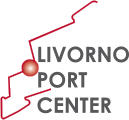
06 Ott Porti & dintorni. Cosa fa la portualità internazionale per reagire alla crisi. Numero 19
Altra notizia in tema di crisi (post-)pandemica e di impatto di medio-lungo corso sul mondo della portualità. La realtà dei marittimi, troppo spesso trascurata dalla ribalta della cronaca, racconta un settore del lavoro fondamentale per la continuità dei traffici, ma sovraesposto alle ondate di “marea” dell’attuale contesto socio-economico e sanitario.
Tratta da Container Management.
As many as 400,000 seafarers are estimated to be stranded on ships around the world, continuing to work but unable to be relieved, as the COVID-19 pandemic-related crew change crisis worsens.
During an event at the United Nations General Assembly, Captain Hedi Marzougui, who was in command of a vessel between December 2019 and May 2020, appealed to governments to act to allow seafarers to come home.
He stated: “Not knowing when or if we will be returning home brings a severe mental toll on my crew and myself.
«I would encourage each and every one of you to think of how you would feel, if you had to work every day, for 12 hours, with no weekends, without seeing your loved ones, and trapped at sea. Now add that you have to do that with no idea of when you will be repatriated».
COVID-19 restrictions on travel and transit have led to the contracts of many seafarers being extended by several months despite pleas to governments to designate them as essential key workers and to facilitate their travel.
Some seafarers have now been at sea for 17 months without a break, well beyond the 11-month limit set out in the Maritime Labour Convention (MLC). Besides the 400,000 seafarers stuck at sea, another 400,000 are unable to join ships.
International Maritime Organization (IMO) Secretary-General Kitack Lim told the event that the crisis threatens the fundamentals of ship safety standards.
He noted: “Overly fatigued and mentally exhausted seafarers are being asked to continue to operate ships. On more than 60,000 cargo ships which continue to deliver vital goods, foods and medicines, ship safety is hanging in the balance, just as seafarers’ lives are being made impossible. The safety of navigation is in peril.
«Action is needed – and is needed now. We all depend on seafarers. They should not be the collateral victims in this pandemic. Seafarers deliver for us – and now we need to deliver for them».
The CEOs of 30 Consumer Goods Forum companies, including Unilever and Danone, have called on governments to designate seafarers as “key workers” and raised strong human rights concerns, stating that the situation has “inadvertently created a modern form of forced labour”.
In a statement read out at the event, to mark World Maritime Day 2020, UN Secretary-General António Guterres called for governments to formally designate seafarers as ‘key workers’, ensuring safe crew changes and implementing protocols which allow stranded seafarers to be repatriated and others to join ships.
Unilever’s chief supply chain officer Marc Engel said: «When the ships stop, so does everything else. We are now close to an entirely avoidable breaking point which could ripple out through the economy. Even a temporary interruption could push companies and countries over the edge».
Both Guy Platten, Secretary-General of the International Chamber of Shipping and Stephen Cotton, General Secretary of the International Transport Workers’ Federation called on governments to intervene to end the crew change crisis, warning the numbers of seafarers impacted would only continue to increase without coordinated action by governments.
Sia a livello europeo che a livello mondiale le diverse realtà dello shipping si sono attivate per cercare di analizzare il contesto della crisi (post)Covid-19 e cercare risposte di breve e medio termine alle difficili sfide che si prospettano per la ripresa del settore.
I porti del sistema dell’Alto Tirreno stanno contribuendo in vario modo a questa attività, collaborando con le istituzioni locali e territoriali e con le associazioni internazionali stesse.
AdSP MTS ha creato una sezione dedicata nel proprio sito istituzionale (Osservatorio Covid-19), come del resto altre istituzioni omologhe e associazioni operanti nei vari settori della portualità.
Il Livorno Port Center, coerentemente alle proprie funzioni di centro di diffusione della cultura e delle attività marittimo-portuali, proporrà, nelle prossime settimane, aggiornamenti periodici sulla panoramica internazionale, con un focus particolare sull’interazione porto-città e sugli aspetti socio-economici presi in esame nelle newsletter delle diverse associazioni internazionali.
Parte degli aggiornamenti che verranno pubblicati saranno in lingua inglese: attingeremo direttamente alle fonti, con l’intento di dare maggiore risalto e maggiore diffusione a notizie che hanno appunto respiro internazionale.

